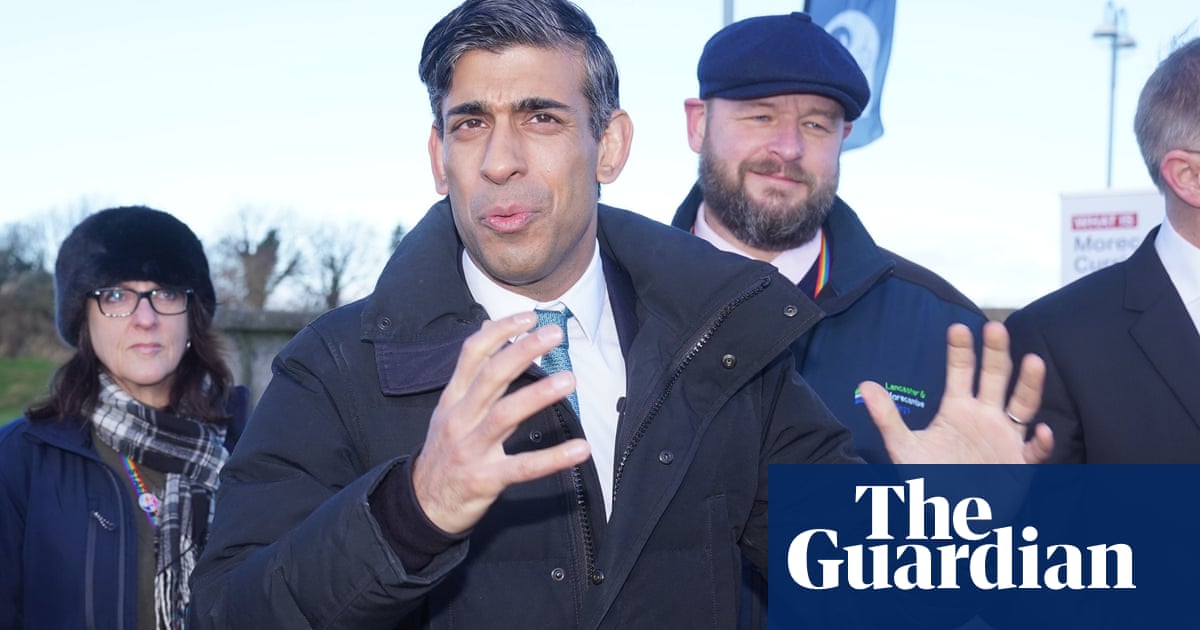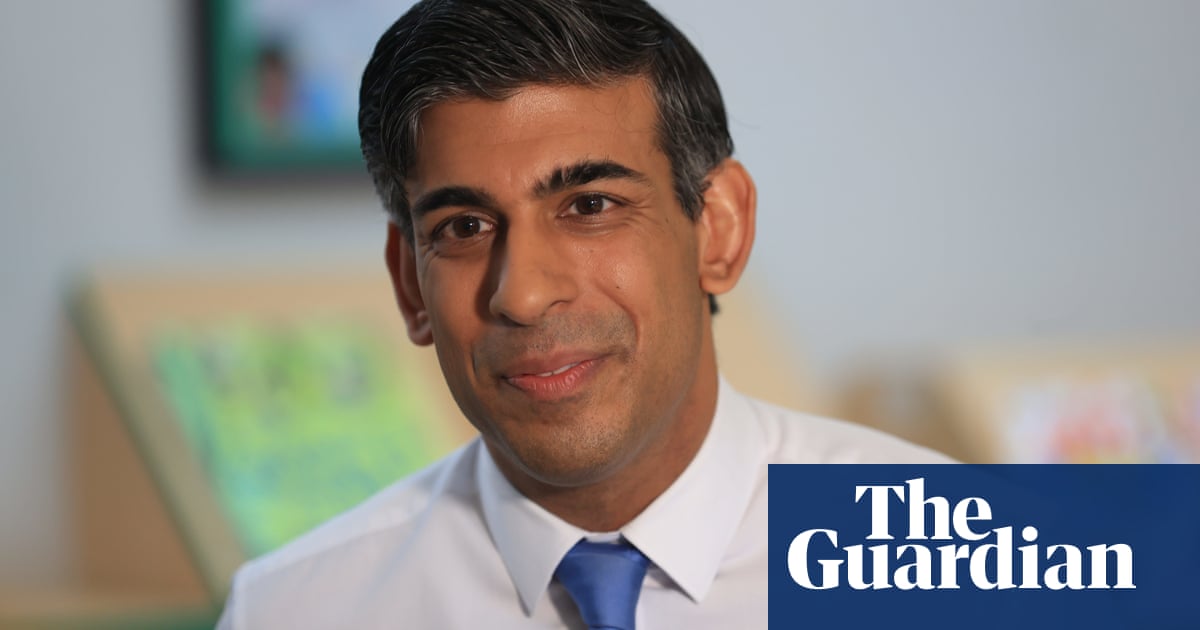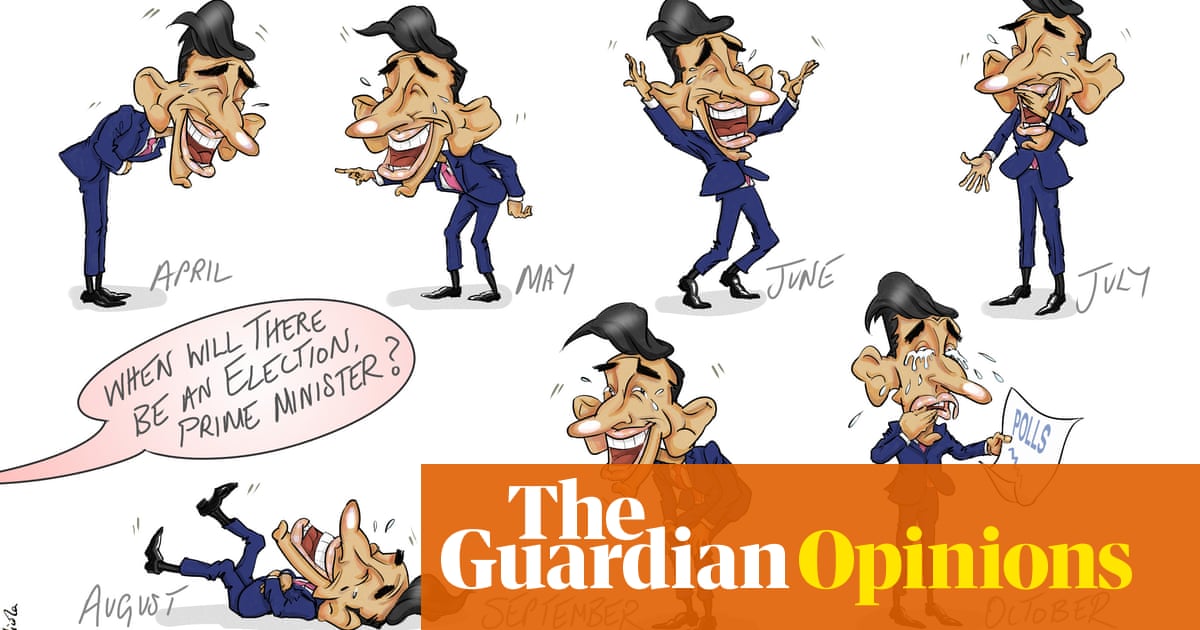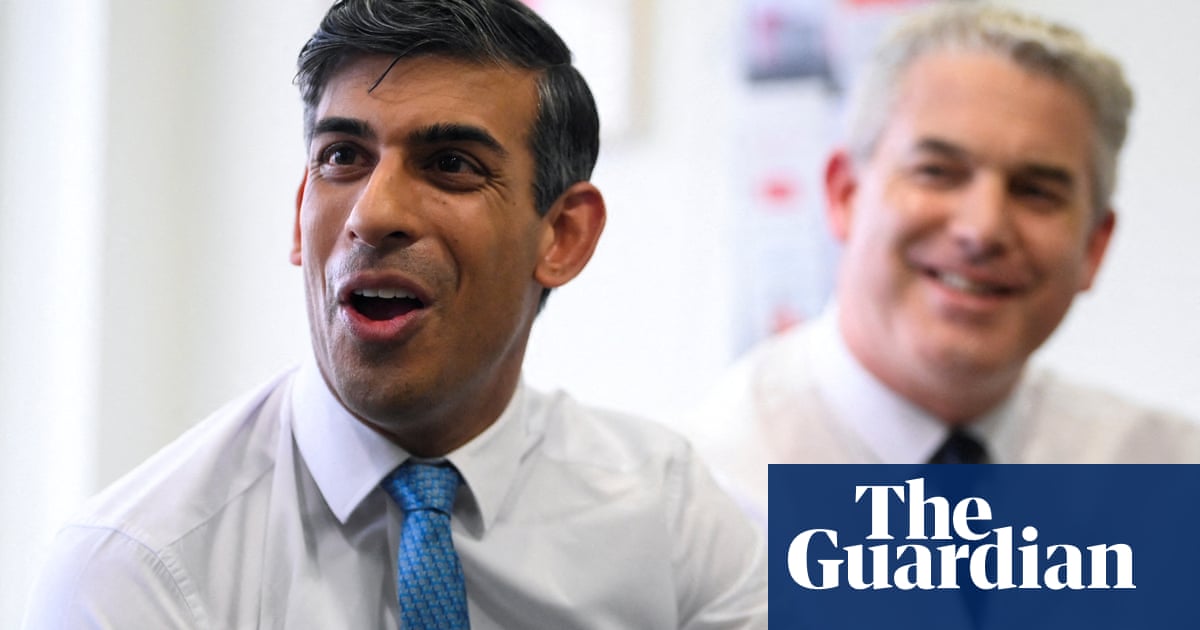
Rishi Sunak flew to the north of England on Thursday, on a 14-seat RAF jet, to show voters there that he understood the cost-of-living crisis.
The prime minister travelled from Accrington to Morecambe and on to Hartlepool on a whistle-stop tour aimed at promoting the government’s “levelling up” agenda but which also foreshadowed what could be a long election campaign ahead.
Sunak is likely to spend much of the next two years in this part of Britain as he looks to hold on to the “red wall” seats his party won in 2019.
During a 50-minute question and answer session with voters in Morecambe, Lancashire, he was at pains to show he was a straight talker who could translate his message outside Westminster.
“The easiest thing in the world would be for me to promise you the earth, but I wouldn’t be being straight with you,” he told the crowd of invited attendees.
The Morecambe event was the first in what advisers said would be a series of similar sessions aimed at capitalising on what they see as Sunak’s ability to answer questions off the cuff with both detail and charm.
He is not the first prime minister in recent years to reach for the question and answer format in an attempt to connect with voters.
John Major set a precedent when he climbed on his soapbox during the 1992 campaign and spoke to often hostile crowds through a loudspeaker.
That campaign was later credited with helping him pull off one of the biggest surprise victories in modern electoral history, one that would be matched if Sunak does win the next election, which is likely to be in 2024.
The format has often worked best when party leaders are exposed to an element of hostility, allowing them to show they are truly listening to voters’ concerns.
Major was physically jostled in 1992 while campaigning in Luton. And a person questioning Tony Blair in 2005 asked him: “How do you sleep at night?”
In 2010, David Cameron turned up at an event in Brighton to be confronted with a student wearing a T-shirt that read: “Step outside posh boy.”
Tim Bale, professor of politics at Queen Mary, University of London, said: “For this to work, people need to see some rough and tumble. When Major got off the campaign bus on to his soapbox and shouted over the noise of the crowd, that was politics in the raw.”
There was little chance of any such conflict on Thursday. All of those who attended had been invited, whether by David Morris, the local Conservative MP, their employer, or the nearby further education college.
Many attendees were delighted at the morning’s announcement that the town would get £50m through the levelling up fund to build the long-planned Eden Project Morecambe.
“This is an absolutely fantastic day,” Caroline Jackson, the Green party leader of Lancaster city council, told the prime minister. “I don’t think I can think of a better day ever.”
Jackson later said she wanted to impress upon the PM the importance of funding such projects even without the type of competitive bidding process the Eden Project had to go through.
But the format did allow Sunak to show his warmer side. Speaking to the audience in his shirtsleeves, he was keen to show he could translate Treasury concepts into normal speech.
“It’s a bit techie, but it’s important,” he began one answer about small business support. Describing the government’s investment in the railways, he said: “I’m going to come out with an enormous sounding number here – £96bn. It’s kind of hard to know what to do with that number.”
And in a moment which attracted smiles in the room but which would probably go down less well with his MPs in Westminster, he said: “I want to cut your taxes … but the reason we can’t is because of all the reasons you know. You’re not idiots, you know what’s happened.” The audience was largely charmed by the performance.
“You could really see his passion today,” said Laura Domville-Powney, a business owner whose shoe shop might benefit from more tourists when the new Eden Project opens. Another attendee, Joanne Hales, said: “He is a plain-talking man trying to deliver on what he says.”
Domville-Powney provided one of the event’s most memorable moments when she asked a question about funding for the local branch of the Royal National Lifeboat Institution and forced her son Luke Powney, an RNLI volunteer, to raise his hand to identify himself.
Sunak invited Powney to meet him afterwards, joking to him that the moment had been reminiscent of an Indian mother trying to find her son a girlfriend.
Behind the bonhomie, however, there lies scepticism that the Conservatives can fix the political and economic problems for which many voters hold them responsible.
Powney said: “There is a lot of frustration, that certain people seem to have been around the Conservative government for a long time and keep circulating, even if they are found to have done something wrong. They just keep turning up in a different department.”
He added, referring to Sunak: “I liked him. But I’m not sure I am going to vote for him.”












